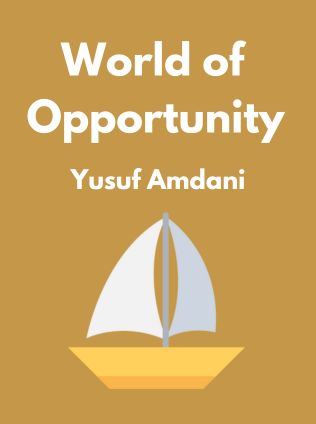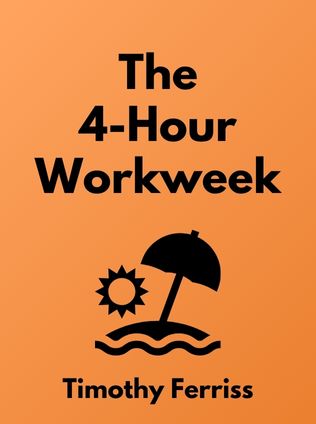
World of Opportunity
Bringing Sustainable Business to Fragile Economies
By Yusuf Amdani
Published 09/2023
About the Author
Yusuf Amdani is a distinguished entrepreneur and author known for his commitment to creating sustainable business models in fragile economies. With a background in various industries, including textiles, real estate, technology, agriculture, and lifestyle solutions, Amdani founded the multinational corporation GK. The company is headquartered in Honduras, a choice that reflects Amdani's dedication to operating in and uplifting developing regions. His book, World of Opportunity: Bringing Sustainable Business to Fragile Economies, encapsulates his journey and philosophy. Amdani's work is characterized by a hands-on approach, a deep understanding of local cultures, and a focus on long-term, sustainable impact. His experience provides invaluable insights into the challenges and opportunities of working in developing economies.
Main Idea
The central premise of World of Opportunity is the transformative power of sustainable business practices in fragile economies. Amdani argues that true change comes from creating opportunities where they are most needed. This involves stepping out of comfort zones, establishing best practices, and committing to long-term goals. The book explores various facets of sustainable development, including the importance of education, healthcare, technology, and environmental conservation. Amdani emphasizes that these elements are not just ethical imperatives but also practical business strategies that can lead to profitable and sustainable growth. His vision is to create a world where businesses thrive in harmony with the environment and local communities, driving economic growth and social progress.
Table of Contents
- About the Author
- Main Idea
- Investigating Regions for Potential
- Make Sustainability Part of the Business Plan
- Envision the Transformation
- Attracting New Partners
- Prioritize Education
- Show Empathy in Healthcare
- Lean Into Tech Advances
- Build a Green Future
- Make a Multiplying Effect
- Ethics At Every Turn
- Conclusion
Investigating Regions for Potential
Amdani begins by exploring the critical process of identifying regions with untapped potential. He suggests looking beyond the immediate challenges, such as lack of infrastructure or political instability, to identify opportunities that can yield long-term benefits. For GK, Honduras was an attractive option due to its strategic location, which offers access to both the Pacific and Atlantic Oceans. The country also provides significant tax incentives and has a growing bilingual workforce, making it an ideal hub for the textile industry and other business ventures.
"Investigate regions with potential, looking at geographical advantages, tax benefits, and a workforce in waiting." - Yusuf Amdani
Businesses aiming to expand should consider factors like ease of access, government policies, and the readiness of the local workforce. For example, Honduras offers exemptions on customs duties and other taxes, making it a cost-effective location for manufacturing and export-oriented businesses. Additionally, the presence of four major ports facilitates international trade, while daily direct flights to major U.S. cities make it a convenient base for North American operations.
To illustrate, consider the following factors when selecting a region:
- Geographical Advantages: Proximity to major markets and transportation hubs can significantly reduce logistics costs.
- Government Incentives: Tax breaks, subsidies, and relaxed regulations can enhance profitability.
- Workforce Availability: Access to a skilled or trainable workforce is crucial for operational success.
Amdani's experience shows that the right combination of these factors can make even the most unlikely regions viable for business operations. The key is to have a clear understanding of your business needs and the unique advantages that different regions offer.
Make Sustainability Part of the Business Plan
Sustainability is not just a buzzword for Amdani; it is a fundamental component of his business strategy. He argues that sustainable practices are not only good for the environment but also beneficial for business. GK's Green Valley project is a case in point. The industrial hub is designed with numerous green initiatives, including renewable energy sources, comprehensive waste management, and water recycling systems. This not only minimizes the environmental impact but also reduces operational costs in the long run.
"True to its name, Green Valley is full of green initiatives. The scenery boasts lovely greenery and landscaped boulevards." - Yusuf Amdani
Green Valley serves as a model for how industrial development can coexist with environmental stewardship. The hub is self-sustaining, with its own energy and water supply systems, and features extensive green spaces and landscaped areas. It also has a plant nursery that supplies greenery for the entire complex, enhancing the aesthetic appeal and contributing to the local ecosystem. The emphasis on sustainability attracts investors who are increasingly looking for socially responsible opportunities.
Sign up for FREE and get access to 1,400+ books summaries.
You May Also Like
Rich Dad Poor Dad
What the Rich Teach Their Kids About Money - That the Poor and Middle Class Do Not!
By Robert T. KiyosakiFreakonomics
A Rogue Economist Explores the Hidden Side of Everything
By Steven D. Levitt and Stephen J. DubnerThe Lean Startup
How Today's Entrepreneurs Use Continuous Innovation to Create Radically Successful Businesses
By Eric RiesWho Moved My Cheese?
An Amazing Way to Deal with Change in Your Work and in Your Life
By Spencer Johnson, M.D.Factfulness
Ten Reasons We're Wrong About the World – and Why Things Are Better Than You Think
By Hans RoslingMake Your Bed
Little Things That Can Change Your Life...And Maybe the World
By William H. McRaven



















